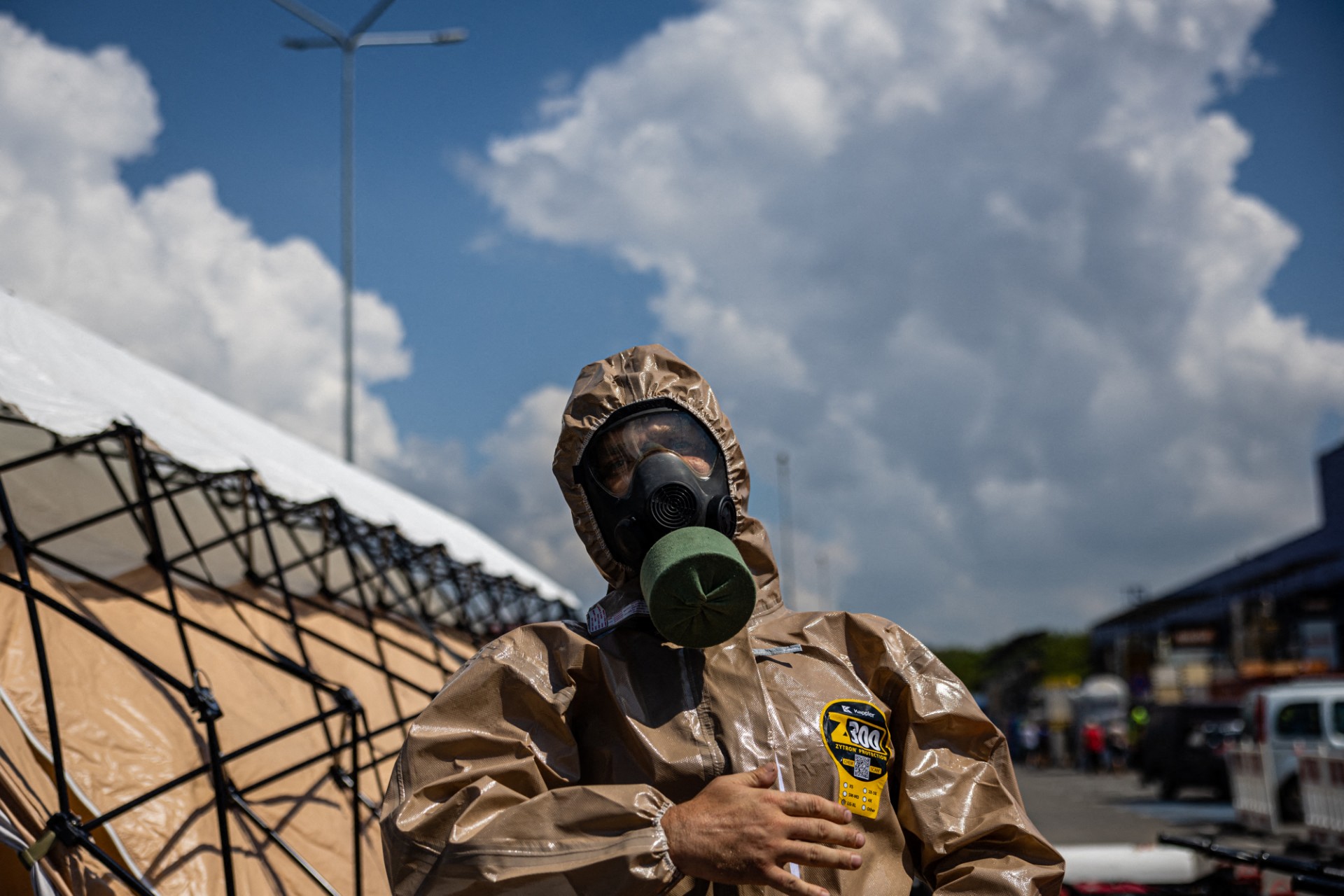Is Ukraine’s Zaporizhzhia nuclear plant at risk of an ‘accident’?

EXPLAINER
Global powers raise alarm after latest drone attack on Russian-held nuclear facility hits reactor confinement structure.
Ukraine’s Russian-held Zaporizhzhia nuclear power plant is dangerously close to suffering an accident because of recent drone attacks on it, according to the head of the United Nations nuclear watchdog agency, the International Atomic Energy Agency (IAEA).
Here is what we know:
What prompted the alert?
Since April 7, the largest nuclear power facility in Europe has come under a series of drone attacks.
The latest attack that came on Sunday set “a very dangerous precedent” because the reactor confinement structure was hit, said the IAEA chief Rafael Mariano Grossi, whose agency has staff deployed at the facility.
Moscow and Kyiv have blamed each other for the attacks on the site that was occupied by Russian forces shortly after their full-scale invasion of Ukraine in February 2022.
Last week, all six power units of the Zaporizhzhia nuclear power plant which is located in southeastern Ukraine were switched to the cold shutdown mode for the first time since 2022.
How did the world react?
On Monday, the UN Security Council (UNSC) addressed the fears of a nuclear catastrophe, with Grossi calling for the end to “these reckless attacks” on the plant.
“Though, fortunately, they have not led to a radiological incident this time, they significantly increase the risk at Zaporizhzhia nuclear power plant, where nuclear safety is already compromised,” he said.
“We are getting dangerously close to a nuclear accident. We must not allow complacency to let a roll of the dice decide what happens tomorrow,” Grossi said.
The United States deputy ambassador to the UN, Robert Wood, told the UNSC that “Russia does not care about these risks”, adding that “if it did, it would not continue to forcibly control the plant”.
Russia’s UN ambassador Vassily Nebenzia blamed Ukraine for the attacks, saying that “over the last few months, such attacks not only resumed, they significantly intensified”.
Ukraine’s ambassador to the UN, Sergiy Kyslytsya, called the attacks “a well-planned false flag operation by the Russian Federation”, which he alleged Russia had designed to distract the world from its full-scale invasion of its neighbour.
Geng Shuang, China’s deputy ambassador to the UN, called on “all parties to uphold the principle of indivisible security” strictly abiding by the bottom line of nuclear safety, and resolutely prevent any man-made nuclear accident at the Zaporizhzhia nuclear power plant.
Why the Zaporizhzhia nuclear plant matters?
The Soviet-designed facility is the largest in Europe and among the 10 biggest in the world, and used to generate half of Ukraine’s nuclear-derived power before the war.
The plant has a total capacity of about 6,000 megawatts, enough for about four million homes.
In case of a radiation leak or an explosion, the whole European continent could get contaminated, experts recently told Al Jazeera.
Ukraine’s President Volodymyr Zelenskyy has accused Russia of using the Zaporizhzhia plant to launch “nuclear terror”.
How the plant has been central in the war
The city of Zaporizhzhia as well as the region with the same name has seen active fighting from the beginning of Russia’s war on Ukraine.
On the eighth day of Russia’s war in Ukraine – March 3, 2022 – for the first time in history, an operating nuclear station was taken over militarily.
In the days and weeks that followed the takeover, Moscow deployed hundreds of servicemen and Chechen national guardsmen to the station.
It has been used as part of the information war by warring sides ever since.
Zelenskyy sounded the alarm in June and again in July this year over a possible plan by the Russians to sabotage the Zaporizhzhia plant.
In turn, Russian authorities also repeatedly accuse Kyiv of plotting an act of “sabotage” at Zaporizhzhia.
Related
Qatar emphasizes importance of reaching agreement between US, Iran
CAIROQatar's Prime Minister Sheikh Mohammed bin Abdulrahman Al-Thani stressed the critical need for an agreement between the US and
International Women’s Day: Seeking a Balance with Ghada Al Subaey
1309’s Ghada Al Subaey of Qatar celebrates the many layers of femininity in her recent drop, called Labyrinth of Light. This International Women’s Day, the
Discover Ooredoo Plans and Services in Qatar
Ooredoo is the household name in the field of telecommunications and provides a full portfolio of telecom services: mobile plans for everyone, home
What Will The Imminent Qatar Airways Widebody Order Include?
Which Airline Alliance Do You Prefer To Fly With?












